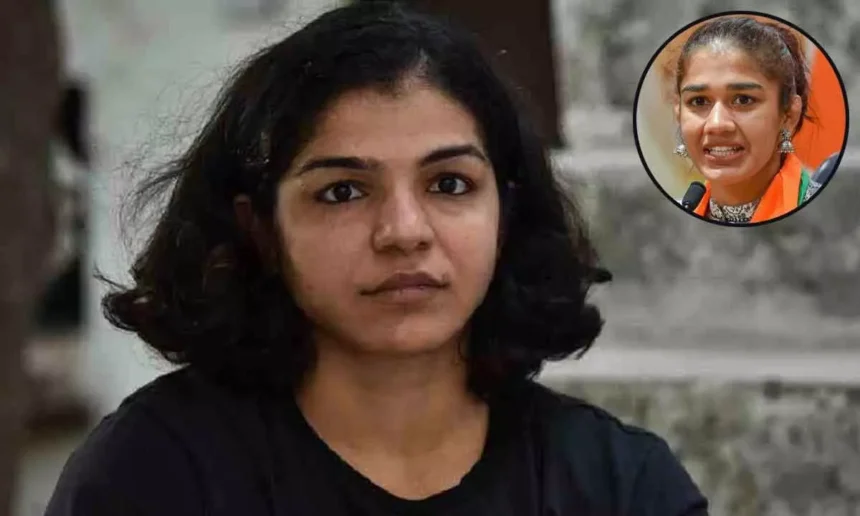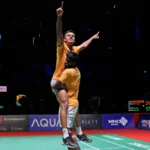In a recent development, Olympic medallist Sakshi Malik has made serious allegations against former Commonwealth Games gold medallist and BJP leader, Babita Phogat. Sakshi accused Phogat of attempting to exploit wrestlers for her own personal motives. These accusations arose after Sakshi and her husband, Satyawart Kadian, released a video claiming that Phogat, along with another BJP leader named Teerath Rana, had helped them obtain permission for their protest at Jantar Mantar. The purpose of their protest was to highlight that the Congress party was not involved in their agitation.
Taking to Twitter on Sunday, Sakshi Malik expressed her concerns, stating, “In the video we posted, we highlighted how Teerath Rana and Babita Phogat were trying to use wrestlers for their selfish gains. When the wrestlers found themselves in trouble, these individuals sought support from the government instead.” She added, “Although we are facing difficulties, our ability to appreciate humor should not be compromised to the extent that we fail to understand a joke made at the expense of those in power.”
Sakshi’s accusations shed light on the complex dynamics surrounding the involvement of athletes in political activities and the potential exploitation that may occur. As prominent figures in the sports arena, athletes often possess considerable influence, which can be harnessed by political leaders for their own agendas.
The involvement of Babita Phogat, a renowned wrestler and political leader, has sparked a discussion about the responsibilities and ethical boundaries of athletes engaging in political activities. While some argue that athletes should have the freedom to express their political opinions, others caution against exploitation and urge athletes to carefully consider the implications of their associations.
Sakshi Malik’s allegations suggest that Babita Phogat and Teerath Rana may have used their influence to manipulate the situation for personal gain. By offering assistance in securing permission for the protest, Phogat and Rana potentially aimed to align themselves with the wrestlers’ cause while bolstering their own political standing. Sakshi’s tweet implies that this support was conditional and primarily driven by self-interest rather than a genuine concern for the athletes’ well-being.
The controversy surrounding these allegations reflects the challenges faced by athletes when engaging in political discourse. Athletes possess a platform that allows them to raise awareness and advocate for important causes. However, this platform also makes them susceptible to manipulation by political figures seeking to leverage their popularity and credibility for personal or party gains.
As the situation continues to unfold, it remains essential for athletes to maintain a critical stance and be aware of potential exploitation. Athletes should carefully assess the motivations and intentions of those seeking to align themselves with their causes. Furthermore, it is crucial for athletes to remain independent thinkers, ensuring that their involvement in political activities aligns with their own values and beliefs rather than becoming a means for others to further their agendas.
Sakshi Malik’s accusations against Babita Phogat highlight the need for athletes to be cautious about who they associate with and the potential implications of their involvement in political activism. While the broader conversation around athletes’ political engagement continues, it is vital for athletes to prioritize their integrity and ensure that their actions serve the greater good rather than becoming tools for personal gain or exploitation.




